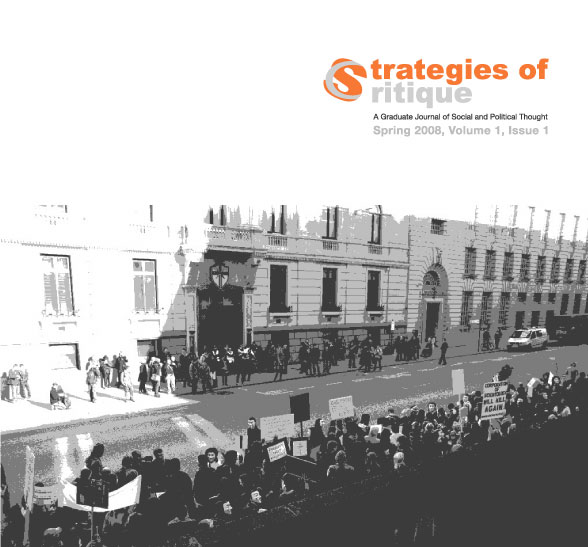This Body, This Civilization, This Repression: Marcuses's Sexual Theory and the Ongoing Relevance of Negative Thinking
DOI:
https://doi.org/10.25071/1916-7210.15365References
Adorno, T. W. (1998). “Critique,” In Critical Models: Interventions and Catchwords. H. W. Pickford (Tr.), New York: Columbia University Press.
Feenberg, A. (1995). Alternative Modernity. Los Angeles: University of California Press.
Hegel, G.W.F. (1977). Phenomenology of Spirit. A.V. Miller (Tr.), Oxford: Oxford University Press.
Freud, S. (1960). The Ego and the Id. J. Riviere (Tr.), New York: W.W. Norton & Company Inc.
Freud, S. (1961). Beyond the Pleasure Principle. J. Strachey (Tr.), New York: Liverlight.
MacIntyre, A. (1970). Marcuse. London: Fontana.
Marcuse, H. (1956). Eros and Civilization: A Philosophical Inquiry into Freud. London: Routledge.
Marcuse, H. (1964). One-Dimensional Man: Studies in the Ideology of Advanced Industrial Society. Boston: Beacon Press.
Marcuse, H. (1969). An Essay on Liberation. Boston: Beacon Press.
Robinson, P. A. (1969). The Sexual Radicals: Wilhelm Reich, Geza
Roheim, Herbert Marcuse. London: Temple Smith.
Schoolman, M. (1980). The Imaginary Witness: The Critical Theory of Herbert Marcuse. New York: The Free Press.
Whitebook, J. (1995). Perversion and Utopia: A Study in Psychoanalysis and Critical Theory. Cambridge: The MIT Press.
Downloads
Published
Versions
- 2008-04-24 (2)
- 2008-04-24 (1)


